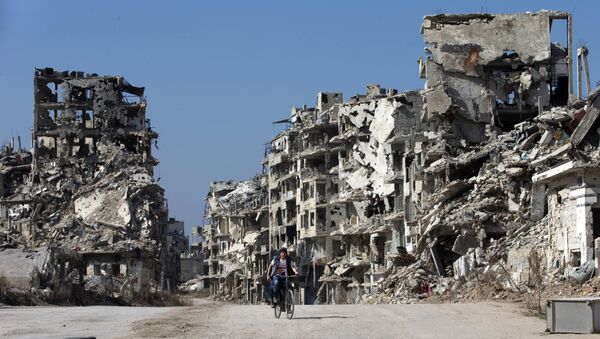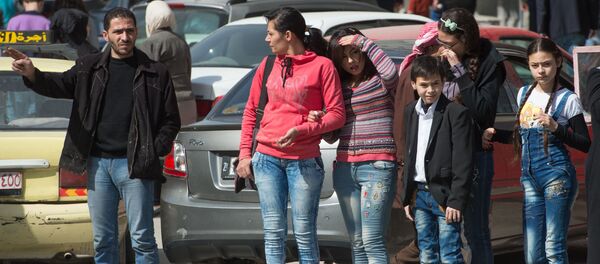The improbable oversight at the State Department’s 24-hour hotline, in operation for less than one week, was spotted by Syria Direct, a non-profit group of local journalists.
Notably, Arabic-speaking journalist Orion Wilcox, reporting a truce violation in the Homs province, was surprised when he heard English spoken on the other end of the line.
“Hello, this is the State Department cessation of Syria hostilities hotline, may I help you?” asked a man’s voice answering the call.
A State Department staffer then switched to Arabic, but he could understand only a few words.
“He’s really struggling and can’t understand me… I’m like, why is this American guy on the phone who can’t speak Arabic?” Wilcox stated, “I’d give a detailed account of something happening in Homs province and he would listen and his answer was: ‘Homs.’ That’s it.”
US reviews staff on Syria hotline after language problems#SyriaCeasefire #UShttps://t.co/llrZBsVMF1 pic.twitter.com/jQFSRPCnD3
— The Peninsula (@PeninsulaQatar) 2 марта 2016 г.
In another instance, activist Osama Abu Zeid tried to report air strikes on villages in Hama province on Monday. He said that the American’s pronunciation was so poor that the words he tried to articulate in Arabic sounded like curses.
Osama detailed that after a four-minute conversation the operator, trying to figure out what settlement was under attack, pronounced the village Harbnifsah as “Harb Bebsi,” which basically means “Pepsi War” in Arabic.
“We attempted to call the [Department of State’s hotline], but we don’t think they understood what we were saying,” he said, adding that he has turned to the United Nations and the High Negotiations Coordinating Committee to report violations.
The US State Department admitted that there are “some language issues” at the hotline, adding that there are only “some” Americans who can speak Arabic.
“We’re working to correct those, obviously, because it’s important that we have Arabic speakers that were able to field incoming calls,” State Department spokesperson Mark Toner stated.
There are other options for Syrians who can’t understand American-inflected Arabic speech. Ceasefire breaches can be reported via email, text, and Google Voice.
If you have firsthand knowledge of a violation of the #CoH in #Syria, there are several ways to report it: pic.twitter.com/5jE1SoumuT
— U.S. Embassy Syria (@USEmbassySyria) 28 февраля 2016 г.
Still, many Syrians remain skeptical about the achievements of US services in the country.
“America has no idea what’s happening on the ground in Syria,” Salim a-Rihal, a Homs province resident that suffered shelling on Tuesday told Syria Direct.
Despite a handfull of violations across the Homs, Hama, Lataki and Damascus provinces, the ceasefire has so far been successful, claimed UN envoy Staffan de Mistura to reporters in Geneva.




